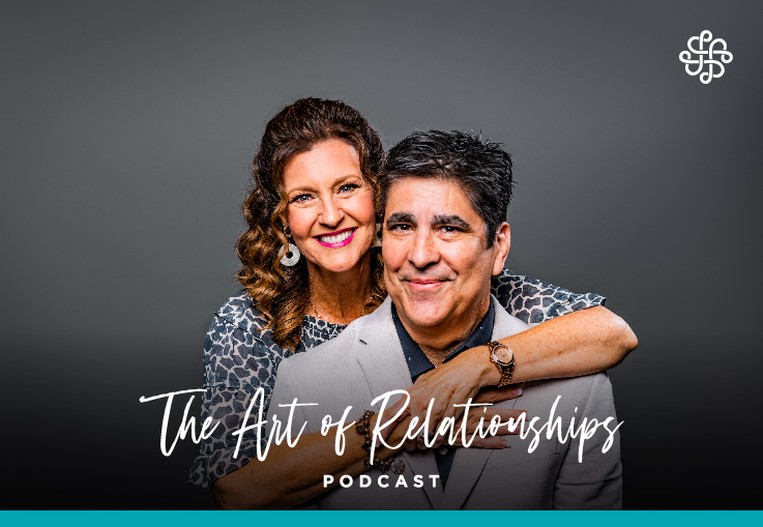7 Things To Do When A Loved One Has Anxiety or Depression
Chris Grace - October 4, 2023
Topic: Anxiety, Depression, Family, Love

When someone you love struggles with anxiety or depression the effect it can have on your relationship can be huge.
It is both common sense and a scientific fact that our relationships are impacted by another person’s moods and emotions. They can energize—or suck the life out of—our most intimate friendships. A spouse or partner who was once approachable and easygoing is now irritable and unhappy, and this can trigger a cheerless or bad-tempered reaction in you, slowly eroding your once intimate connection.
Sometimes called the “common cold” of mental health disorders due to their widespread prevalence, depression and anxiety know few bounds when it comes to the type of people who struggle—impacting male and female alike, of all ages, in almost every culture. Sadly, 21 million U.S. adults per year struggle with a mood disorder. It can affect a person’s thinking, emotional state, and behavior, and disrupt their ability to go to class or work, to carry out daily activities, to engage in satisfying relationships, and even to experience pleasure.
"Sometimes called the 'common cold' of mental health...depression and anxiety know few bounds when it comes to the type of people who struggle—impacting male and female alike, of all ages, in almost every culture."
It is important to know the typical signs of anxiety and depression, such as:
- Strong or Intense Emotions (sadness, anxiety, guilt, anger, helplessness)
- Troubling Thoughts (self-criticism, self-blame, pessimism, indecisiveness and confusion)
- Worrisome Behaviors (crying spells, withdrawal from others, neglect of responsibilities, loss of interest in personal appearance, loss of motivation)
- Physical Symptoms (fatigue, lack of energy, sleeping too much or too little, overeating or loss of appetite, headaches, unexplained aches and pains)
- Spiritual Dryness (hard to pray or worship or be in fellowship with others, loss of hope)
Struggling with depression and anxiety does not mean a person is weak or defective. It is not that they are somehow being punished or are not a good-enough Christian. They can’t “just snap out of it.” We know that there are biochemical causes (e.g., the neurotransmitter serotonin), probable genetic links, and some connections to daily hassles and life stressors (family dynamics, financial pressures, physical pain, deadlines with school or work). But it still can have negative repercussions for your relationship.
"Struggling with depression and anxiety does not mean a person is weak or defective. It is not that they are somehow being punished or are not a good-enough Christian."
If someone you love suffers from anxiety or depression, here are seven ways to counter the negative impact they can have on a relationship.
1) Know the Triggers. It is essential to recognize what may trigger your loved one’s feelings of sadness and anxiety. Knowing such triggers can help you both better control a negative environment and limit the exposure to things that can set someone off. For example, positive emotions like contentment increase when people place limits on social media, such as when they disconnect from Twitter, Instagram or Facebook, or take an extended technology fast. These can lower feelings of depression and anxiety by allowing for more times of quiet reflection and prayer, and less time for unrealistic comparisons.
2) Be Prepared. When a “funk” turns more serious, and you find yourself in a situation that feels overwhelming or above your paygrade, be prepared to act. Be on the look-out for any serious risks (such as suicidal thoughts or plans, or intent to harm.) Mental health experts (e.g., Mental Health First Aid advocates) recommend that when things are not going well, or during a crisis moment, you should be prepared to give reassurance, listen nonjudgmentally and encourage self-help and other support strategies, and encourage appropriate professional help. Don’t hesitate to enlist the help of experts, starting with your general practice medical doctor, mental health counselors, and pastors or support group leaders. Talk to your doctor about counseling and medication options, and with a licensed therapist about relational, family or stress issues.
3) Stay in Touch. Depression and anxiety often disconnect us, but exciting new research shows that simply holding hands can actually calm our anxiety, bring pain relief, and reconnect us. We have long known that physical closeness is powerful enough to ease pain and aid healing. Why? Because touch like this expresses empathy and comfort to those in emotional and physical pain, increasing the synchrony of our brains waves, breathing and heart rate, leading to less pain. The more empathy you feel toward a partner, the more your brain activity syncs, the less anxiety they feel, and the more their pain subsides. Amazing how God designed humans: “I the Lord your God hold you by the hand…” (Is. 41:13).
4) Take Care of Your Heart. Find a place where you can be alone with God regularly, and he can minister to your heart. A quiet setting with minimal distractions can provide a needed spiritual, mental and emotional rest, even if for only 10-15 minutes. For me, in college one semester, it was in a music practice room where a friend would practice playing the piano. I would often meditate on scripture like “Be still and know that I am God” (Ps. 46:10) and “The angel of the Lord encamps around those who fear him, and delivers them” (Ps. 34:7).
5) Process with Someone. You need the space and blessing to deal with your own thoughts and emotions. Such processing may involve keeping a journal or simply talking to a friend. Getting your thoughts out, whether verbally or written down, helps you better know and examine your emotions and feelings, often leading to a strategy to better manage the stress. Consider making an appointment with a pastor, a spiritual director, or a therapist. Expressing what you’re going through can be very cathartic, even if feels like there is nothing you can do to alter the stressful situation. There are many support groups in nearby cities for you, and a counselor can help you find a group you need.
6) Don’t Try to Control the Uncontrollable. Many things in life are beyond our control— particularly the behavior of other people. Rather than stressing out over them, focus on the things you can control, such as the way you choose to react to problems. Look for the upside. As the saying goes, “What doesn’t kill us makes us stronger.” When facing major challenges, try to look at them as opportunities for personal growth. For example, if your own poor choices contributed to a stressful situation, reflect on them and learn from your mistakes. Accept the fact that we live in an imperfect world and that people make mistakes. Let go of anger and resentments. Free yourself from the negativity by forgiving and moving on.
7) Stay Prayerful and Hopeful: During times like this, God promises to be our refuge and strength, an ever-present help in times of trouble (Ps. 46:1). Ask him for his strength, his comfort, and his presence, knowing he also promises that his Spirit will inhabit that place where you call out to him. “You are my hiding place; you will protect me from trouble and surround me with songs of deliverance” (Psalm 32:7-8). Scripture is so very powerful in times like this. Memorize passages such as Joshua 1:9, Ps. 16:8, and Ps. 27:14, and meditate on them throughout your day.
C.S. Lewis once said that “affection is responsible for nine-tenths of whatever solid and durable happiness there is in our lives.” When relationships go well they energize us and bring us great joy. But when one person is struggling with depression or anxiety, it can be a challenge and the results devastating. However, if you follow these seven steps I think you will find help for your loved one, and just as importantly, hope for you.

Chris Grace
Christopher Grace serves as the director of the Biola University Center for Marriage and Relationships and teaches psychology at Rosemead School of Psychology. He and his wife, Alisa, speak regularly to married couples, churches, singles and college students on the topic of relationships, dating and marriage. Grace earned his M.S. and Ph.D. in experimental social psychology from Colorado State University.

 The Greatest Christmas Gift of all...And it's Not What You Think
The Greatest Christmas Gift of all...And it's Not What You Think
 From Scripture & Science: How to Talk About Mental Health
From Scripture & Science: How to Talk About Mental Health
 The Sacred Work of Mothering Part 2
The Sacred Work of Mothering Part 2